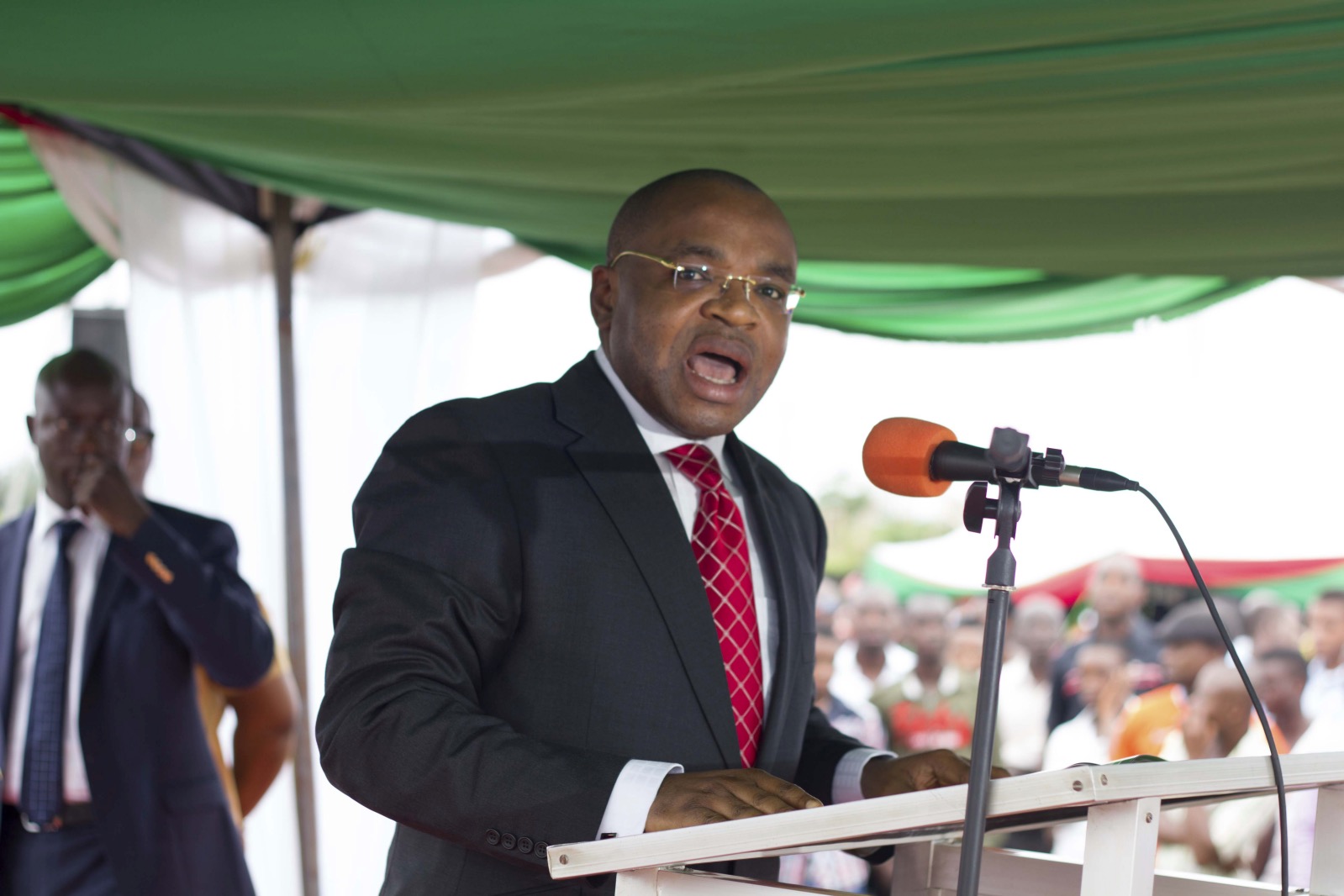The industrialization drive of Governor Udom Emmanuel has recorded huge success with Akwa Ibom State now rated the second most preferred investment destination with $18.36 in Foreign Direct Investment, FDI, and Other Investment components of capital importation behind Lagos.
The National Bureau of Statistics (NDS) in its report for first quarter, yesterday, announced that Akwa Ibom is the second largest foreign exchange attraction from importation of development capital in Nigeria as at the end of the first quarter of this year.
Lagos State remained the top destination of the capital importation, accounting for 95.32 percent of all inflows, although slight decrease in its share relative to the previous quarter at 96.38 per cent.
The Akwa Ibom State Governor and former executive director at Zenith bank, Udom Emmanuel has attracted investments running into billions of naira to the oil rich state, some of which include a syringe factory, metering company, flour mill and alternative funding partnership with Chinese construction firm, Wizchino Ltd.
Mr Emmanuel has also initiated local investment drives with the establishment of a toothpick and pencil factory, the first in the country, a hatchery and the resuscitation of the state owned peacock paints limited to create jobs.
FDI inflow into Akwa Ibom State is second best in Nigeria and higher than all the five southeastern states combined.
Meanwhile, Nigeria’s capital importation in the first quarter of 2017 lost about $640 million to settle at $908.3 million, which is 41.4 per cent decline from $1.55 billion recorded in the fourth quarter of 2016.
The fall in Foreign Direct Investment (FDI) and Other Investment components of capital importation report came after four and three consecutive quarters of increase respectively.
But two research analysts from top six banks in the country, were unanimous in pointing out that the months of January and February this year were low points in the country’s battle against foreign exchange crisis, which may have deterred inflow of investments.
Leading the decline were portfolios under the Other Investment and Foreign Direct Investment (FDI), while Portfolio Investment was the only category to record an increase relative to the previous quarter.
These portfolios are equity contribution in cash or equipment; equity investment in securities at the money market; trade credits; loans; and currency deposits.
The National Bureau of Statistics (NDS) in its report for first quarter, yesterday, said although $908.3 million was smaller than the value of capital imported in the previous quarter, and the second lowest value recorded since 2007, it was an increase of 27.75 per cent relative to the same quarter of 2016.
It however, noted that there was a high-profile sale of bonds denoted in a non-local currency during the quarter, which did not appear in the current data, due to time lag between subscription and actual payment, but would be included in the second quarter report.
Specifically, NBS affirmed that capital importation was particularly low in January, at $187.90 million, the fourth month since 2007, in which capital importation fell below $200 million.
Nearly all of the quarterly fall resulted from declines in capital imported into the telecommunications and oil and gas sectors, which recorded unusually high values in the previous quarter.
Meanwhile, Standard Chartered Bank, Access Bank, Ecobank, Zenith Bank, Stanbic IBTC Bank, Guaranty Trust Bank and United Bank for Africa, were top recipients of the capital inflows.







